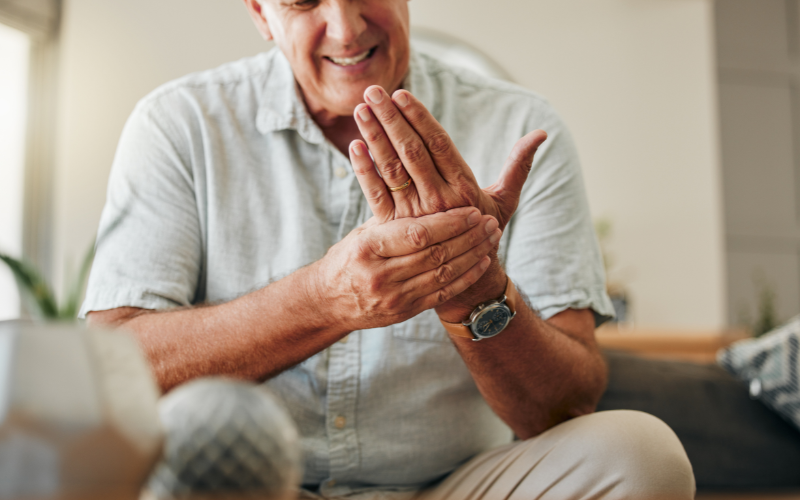
Parkinson’s disease is a neurological condition that gradually progresses over several years. Its early symptoms may not be immediately identifiable as belonging to this disease, making it crucial to recognize the early warning signs.
Dopamine plays a pivotal role in movement and coordination. The onset of Parkinson’s disease is marked by the death of dopamine-producing brain cells, leading to a decrease in dopamine levels. This deficiency triggers a range of symptoms, which vary widely among individuals with the disease.
Age is a significant risk factor for Parkinson’s disease, with the condition typically developing in individuals around the age of 60. However, a small percentage—about 5 to 10 percent—may experience early-onset Parkinson’s before the age of 50.
Genetics also contribute to the risk of developing Parkinson’s disease, though to a lesser extent. Approximately 15 percent of cases have a genetic cause. Research suggests that the disease results from a complex interplay of genetic factors, lifestyle, and environmental influences.
The manifestation of Parkinson’s disease is highly individualized, making it challenging to pinpoint whether symptoms are indeed related to this condition. They may often be mistakenly attributed to normal aging, which they are not.
Observing certain symptoms, particularly in combination, may indicate the presence of Parkinson’s disease. While no single symptom definitively diagnoses the disease, individuals experiencing multiple symptoms should consult their physician. Here are the early warning signs of Parkinson’s disease.
- Tremors
Tremors in the finger, thumb, hand, or chin may be an early sign of Parkinson’s disease. Seniors should be concerned when the shaking or tremors occur while at rest. However, tremors can be normal after vigorous exercise, stress, injury, or taking certain medications.
- Loss of Smell
A loss of smell is a symptom of Parkinson’s disease. Seniors with this early symptom of the disease may no longer be able to smell, including food items, like bananas or pickles. Remember, a temporary loss of smell can occur when the senior comes down with the flu or cold.
- Sleep Issues
Sudden movements that occur during the night when seniors are asleep can be indicative of Parkinson’s disease. During deep sleep, the senior may thrash in bed. Occasional tossing and turning or quick jerks during lighter sleep, however, are considered normal.
- Body Stiffness
Stiffness, especially in the arms, legs, or body, that does not alleviate upon movement can be an early sign of Parkinson’s disease. The affected senior may also experience pain or stiffness in the hips or shoulders. Arthritis, too, can cause stiffness, and should not be confused with symptoms of Parkinson’s.
- Constipation
Frequent straining during bowel movements may suggest early-onset Parkinson’s disease. Other factors can cause constipation, such as pain medication side effects or a lack of sufficient dietary fiber. If diet and medications are not causing the constipation, consult the doctor.
- Bladder Issues
The nervous system plays a major role in bladder function which is why those affected by Parkinson’s may experience bladder issues. It is common for Parkinson’s patients to feel like they have to urinate frequently or experience urinary urgency in which they suddenly feel like they need to urinate.
- A Soft Voice
Early symptoms of Parkinson’s disease can cause a senior to speak more softly. Changes in voice, including sounding hoarser, should prompt the senior to see a doctor about Parkinson’s. A chest cold, however, can temporarily cause a senior’s voice to sound different.
- Facial Masking
Seniors with Parkinson’s disease may wear a serious or angry look on their faces, even when they are in a good mood. Known as facial masking, this symptom is concerning. Certain medications can also cause facial masking, but normal facial expressions return upon stopping the drug.
- Dizziness
Signs of low blood pressure, such as fainting and dizziness, can be linked with Parkinson’s disease. Affected seniors may experience these symptoms upon rising from a chair. When feeling faint or dizzy occurs on a regular basis, speak with the physician about Parkinson’s disease.
- Slouching
Stooping and hunching over can be symptoms of Parkinson’s disease. Elderly individuals with the condition no longer stand up straight and even slouch. Standing crookedly, however, can also be caused by pain from an injury, problems with bones, or being sick.
- Smaller Handwriting
Known as micrographia, abnormally small handwriting can be caused by Parkinson’s disease. Seniors may notice their handwriting is smaller than in times past: Letter sizes are smaller, and words are crowded together. Remember, stiff fingers and poor vision can also cause changes in handwriting.
- Depression
Those in the early and later stages of Parkinson’s disease may experience changes in mood, and about one third of Parkinson’s patients experience depression and anxiety. If your loved ones are experiencing symptoms of depression when they never have before, in addition to other signs, they may be affected by Parkinson’s.
Parkinson’s Home Care from Assisting Hands

Early detection of Parkinson’s disease is crucial for seniors to maintain a productive and high-quality life. Consulting with a neurologist, a specialist in brain health, allows for the creation of a tailored plan to promote well-being. Initiating occupational therapy, speech therapy, or physical therapy can provide significant support for seniors living with Parkinson’s. Additionally, consulting a medical social worker can offer insights into how the disease might impact their lives, highlighting the importance of regular exercise and home support.
When the early signs of Parkinson’s start interfering with daily activities, seeking Parkinson’s care from Assisting Hands Home Care becomes crucial. Our caregivers are well-versed in managing the disease, helping seniors to stay comfortable in their own homes.
As Parkinson’s progresses and symptoms exacerbate, our services adapt to meet the increasing needs. Our professional caregivers assist with personal care, mobility, medication reminders, light housekeeping, and transportation to medical appointments, providing much-needed companionship.
Families gain peace of mind knowing that our licensed and bonded caregivers are dedicated to ensuring their elderly loved ones can live safely and comfortably at home, despite the challenges of Parkinson’s disease.
Whether a senior needs live-in care, companion care, overnight care or 24-hour care, Assisting Hands Home Care is available. Choose us when compassionate home care is a priority. We serve the elderly in Coppell, TX | Dallas, TX | Highland Park, TX | Richardson, TX | University Park, TX and the surrounding communities. Call us at (214) 760-6944 today for quality home care.







